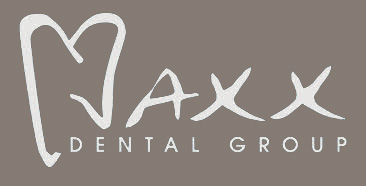
 Wetaskiwin Smiles
Wetaskiwin Smiles
Your Affordable Family Dentist In Wetaskiwin Feel Great About Your Smile And Your Dentist book appointment call us today

 Walden Dental Wellness
Walden Dental Wellness
Walden Dental is a reliable Calgary dental clinic. Its dedicated team of dentists stays current with the most advanced dental technology to ensure you get the highest-quality care possible.

 Tuscany Dental Centre
Tuscany Dental Centre
Looking for a dentist in NW Calgary? At Tuscany Dental Centre, our family dentist near you provides various dental treatments. Book an Appointment now!

 Temple Dental Wellness
Temple Dental Wellness
If you are looking for a dentist in NE Calgary, Temple Dental Wellness Calgary is happy to provide the dental services you need.

 Swanavon Dental Clinic
Swanavon Dental Clinic
Looking for a dentist in Grande Prairie? Our dentist near you at Swanavon Dental Clinic Grande Prairie provides quality dental care. Contact us today!

 Mount Royal Dental
Mount Royal Dental
Mount Royal Dental is a patient-first Dental clinic in Saskatoon. Our dental clinic provides dental care for all ages. We offer direct billing and accept new patients.

 Inglewood Family Dental
Inglewood Family Dental
Looking for a Calgary dentist near you? Dr. Arash Ravanbakhsh at Inglewood Family Dental is a well-known dentist in Calgary dedicated to providing patient-centered dental care in Calgary.

 Maxx Dental Group
Maxx Dental Group
Are you looking for a dentist in Fort McMurray? At Maxx Dental Group, our dentist near you provides quality dental care you can trust.

 Markham Smile Centre
Markham Smile Centre
Our seasoned family dentists provide high-quality family dental care in Markham.

 Markham Dental Centre
Markham Dental Centre
Looking for a dental clinic in Winnipeg? Visit Markham Dental Centre now for professional dental care. Book your appointment now with our dental clinic near you for a healthy smile!

 Mapleridge Smile Centre
Mapleridge Smile Centre
Mapleridge Dentistry is a professional family dental clinic in Maple, Woodbridge & Vaughan. Looking for the best family dentist near me? Call our clinic at (289) 809-0015

 Lakewood Dental
Lakewood Dental
Are you looking for a dentist in Saskatoon? At Lakewood Dental clinic in Saskatoon, we provide quality dental services. Schedule an appointment today!
Dentists in Canada
If you are looking for top-notch dental care, Canada has you covered. With an impressive array of highly skilled and experienced dentists, it's no surprise that many folks trust Canadian dental professionals for their oral health needs.
Whether you're seeking routine check-ups, specialized treatments, or emergency dental services, you'll find a plethora of options in Canada. The country's dental industry is renowned for its advanced technology, innovative practices, and commitment to patient satisfaction.
Remember, choosing a dentist isn't just about finding someone to clean your teeth. It's about partnering with a professional who can guide your dental health journey. In Canada, you're sure to find that perfect partner.
Dentists in Canada
Are you looking for a dentist who not only has the skills but the heart to handle your dental care? Look no further than the beautiful land of Canada!
Against a backdrop of innovation and technology, Canadian dentists stand out as champions of oral health. This industry is robust with highly trained and experienced practitioners who dedicate their lives to ensuring patients receive quality dental care. Whether it's routine check-ups, specialized treatments or emergency services, you're in safe hands.
Here's why:
Canada houses thousands of dental professionals. Statistics Canada noted there were around 22,000 professionally active dentists in Canada as of 2019, indicating how vast the industry is.
Also, the country is internationally recognized for its standard of education. Dental schools in Canada provide extensive, rigorous training to future dentists, ensuring a deep understanding of oral health issues and solutions.
In addition, staying at the forefront of technology is a priority for Canadian dentists. Technological advances such as 3D imaging, CAD/CAM technology, and dental lasers provide more accurate diagnoses and efficient treatments. As a patient, you're most likely to experience less pain, recovery time, and better outcomes because of these innovations.
Understanding that each patient has unique needs, Canadian dentists personalize their approach to treatment. They don't just fix your teeth, they guide your dental health journey â€" creating a partnership in health that lasts a lifetime.
Canadian dental practices also prioritize patient comfort and satisfaction, cultivating an environment that reduces anxiety and promotes a positive dental visit experience.
Education and Licensing Requirements
Now that you've gained an understanding of the high-quality dentistry services in Canada, it's time to take a closer look at what it takes to become a dentist in the Great White North. If you're curious about how Canadian dentists acquire their skills and expertise, you've come to the right section.
Dental School
First off, to become a recognized dentist in Canada, you must graduate from an accredited dental school. In Canada, there are ten dental schools that meet this criterion. Completion of a Bachelor’s degree â€" typically in science â€" is usually the first step. After this, a 4-year program at an approved dental school is required. During these years, aspiring dentists gain not only theoretical knowledge but also hands-on experience. Hence, they're fully equipped to deal with a range of dental issues by the time they graduate.
National Dental Examining Board of Canada (NDEB)
Upon completion of dental school, graduates are not yet done. Next, they need to pass exams set by the National Dental Examining Board of Canada (NDEB). The NDEB is the body responsible for setting and maintaining the standard for dentistry in Canada. It ensures that dentists meet the necessary competencies to provide quality dental services.
There are two types of exams to be aware of. The first is the Written Exam. This is a comprehensive test that covers all parts of dentistry. The second is the Objective Structured Clinical Examination (OSCE). The OSCE tests a candidate’s knowledge in clinical aspects, including diagnosis and treatment planning.
So, from the rigorous education and exam process, it's clear to see why Canadian dentists are known for their skill and expertise. The journey to become a dentist in Canada is demanding, but the result is a highly trained professional ready to cater to any dental need. However, continuous education should not be ignored. Dentists should always keep themselves informed about the latest technologies and studies, as the world of dentistry is ever-evolving.
And let's not forget about the importance of gaining practical experience after obtaining the license. This experience, combined with the solid educational foundation, allows Canadian dentists to offer the best care for their patients.
Types of Dentists
Understanding different types of dental professionals is key when it comes to choosing the one that's right for you. Canada is home to a wide range of dentistry practices, which ensures you can have access to the exact dental care you need.
General Dentists
General dentists are common in Canada. They're responsible for the majority of primary dental health services. Duties include cleanings, root canals, fillings, sealants, crowns, and bridgework. Moreover, general dentists will always stay on top of the latest trends and continuing their education to provide a comprehensive oral healthcare plan for their patients.
Pediatric Dentists
If you're looking for specialized care for children and adolescents, pediatric dentists are your best bet. Their comprehensive training enables them to meet the unique needs of children’s oral health, also providing them a welcoming and kid-friendly environment that helps in minimizing fear.
Orthodontists
You might be looking for an orthodontist if you have teeth or bite alignment issues. With expert knowledge in braces, clear aligners, and other dental appliances, orthodontists work to straighten your teeth and improve your bite.
Oral and Maxillofacial Surgeons
These dental surgeons play a pivotal role in treating diseases, injuries, and defects impacting the hard and soft tissues of the mouth, teeth, jaws and face. If you're dealing with a complex dental issue, an oral and maxillofacial surgeon may be the specialist you need.
Periodontists
Maple leaf periodontists are the go-to professionals when it comes to gum disease. These dentists specialize in diagnosing, preventing, and treating periodontal disease. They're especially skilled in managing complex cases such as those requiring surgery or advanced gum treatment.
Endodontists
An endodontist is a dentist specialized in root canal treatment. They play a critical role in saving you from tooth extraction by treating the infected pulp inside a tooth.
Prosthodontists
Last but not least, prosthodontists are experts when it comes to restoring or replacing damaged or missing teeth. Their expertise includes crowns, bridges, dentures, and cosmetic dentistry services.
In Canada, it's quite evident that dental health care is taken seriously with a specific focus on the individual needs of the patient. From general dentistry to more specialized branches, Canadian dentists illustrate their commitment to the provision of quality services and patient satisfaction. The rich diversity in dentistry opens up numerous choices for patients, thus creating a genuinely patient-centric dental care system. The next section will delve deeper into some of the latest advancements in dental technology.
Finding a Dentist
Finding the right dentist to suit your specific oral health needs does not have to be a daunting task. After understanding the different dental specialties available, it's time to look at how you can find quality dental care in Canada. There are several reliable methods you can employ.
Recommendations from Family and Friends
The old-fashioned word-of-mouth referral! It's possibly the best way to find a dentist you can trust. Family and friends who have had a good experience with their dentist are likely to recommend them. They'll give you first-hand insight into the dentist's technical skills, patient handling, and overall service. It's not just about finding a competent dentist, but also one with whom you feel comfortable.
Online Search
In today's digital age, an online search is another convenient and advantageous way to find a dentist. Popular search engines like Google, Bing, or Yahoo can be used to search for dentists in your area. Make sure to pay attention to reviews and ratings which can provide insights into a dentist's reputation within the community. Remember, it's not just about ratings but also the qualitative aspect of the reviews. Are they mostly positive? Do they reflect what you are looking for in a dentist?
Dental Associations
Dental associations or organizations can also provide helpful resources. Most associations have online directories that allow you to search for dentists based on their geographic location or specialty. The Canadian Dental Association (CDA) for instance, offers a resource to find CDA accredited dentists. This ensures you are interacting with a professional who consistently meets regulatory and professional standards.
As you plan your search, the most important thing is to find a dentist who suits your specific needs. Whether it's routine check-ups, a child-friendly environment, or cosmetic solutions. The Canadian dental profession offers a variety of options â€" you bet there's one just right for you.
Dental Services in Canada
Dental health is vital for your overall wellness. In Canada, a wide array of dental services are available to ensure your oral health stays in tip-top condition. These services not only treat and manage oral diseases but they also help maintain a beautiful, healthy set of teeth. Delve deep into the different types of dental services available in the Canadian healthcare system.
Preventive Services
Preventive services are your front-line defense against dental diseases setting up camp in your mouth. Most Canadian dental healthcare entities offer the following:
- Regular dental check-ups: These help identify signs of abnormalities and any signs of potential dental problems.
- Dental cleaning: This clears out the hard-to-reach spaces in your oral cavity that can harbor disease-causing elements.
- Dental X-rays: These provide an inside look of what's happening beneath the gum line -- an effective way to spot potential issues early.
Restorative Services
Restorative services come in handy when preventing the damage wasn't possible or it simply snuck up on you. Your dental health provider can offer a variety of treatment options such as:
- Fillings: Fix those pesky cavities, one of the most common dental diseases.
- Crowns and bridges: Restore your smile by replacing missing or broken teeth.
- Root canal treatment: Allows you to save a severely decayed or damaged tooth.
Remember, regular dental check-ups can nip most problems in the bud before they become big problems requiring significant restorative measures.
Cosmetic Services
Want to flash a dazzling, healthy-looking smile every time? Cosmetic dentistry will get you there. A few of the cosmetic services you can avail include:
- Teeth whitening: Get rid of discoloration and stains on your teeth.
- Veneers: Fix chipped or worn-out teeth and enjoy a flawless smile.
- Orthodontics: Straighten your teeth with braces, aligners, and retainers.
Whether you're seeking regular preventive dental care, restorative services, or you're looking to upgrade your smile with some cosmetic changes, the dental services in Canada got you covered. It's can be a helpful guide in selecting what dental services you may need moving forward.
Cost of Dental Care
While the quality of dental care in Canada indeed stands out, it's essential to discuss the financial aspect of things. Dental care costs can fluctuate based on several factors. Across the board, you find public coverage, private insurance, and out-of-pocket expenses making up the key players in dental health financing. Remember, each plays a distinct role and caters to different sections of society.
Public Coverage
In Canada, the public healthcare system, often referred to as Medicare, mostly covers medical treatments and hospital care. However, the standard package does not include dental care services.
Specifically, provincial and territorial governments do provide some dental services under their public health coverage, but it's limited. Most of these plans cover dental treatment for specific groups. These may include:
- Children and youth
- Seniors
- Low-income adults and their dependents
- Certain medical conditions
Please note: Coverage and eligibility criteria vary by province or territory, and it's best to check with your local health authority for accurate information.
Private Insurance
Next to public coverage, you have the option of private dental insurance. While you bear the brunt of the premium costs, private insurance opens the door to a wider range of dental services.
You'll often find private dental insurance plans grouped into three main categories:
- Basic: Covers regular check-ups, cleanings, fillings, scalings, x-rays.
- Major: Covers expensive procedures like crowns, bridges, dentures.
- Orthodontics: Covers braces and other procedures to align teeth and jaws.
Companies typically offer these plans, but you're free to purchase individual plans as well. Choosing the right one should depend on your dental needs and financial capacity.
Out-of-pocket Costs
Despite the public coverage and private insurance, you may still encounter out-of-pocket costs. Such costs include deductibles, co-payments, and any services not covered by your plan.
Keep in mind that dental fees can seriously vary depending on the region, complexity of the treatment, and the professional. Factor in these costs while planning your annual dental visits.
Overall, navigating the financial side of dental care in Canada comes down to understanding these three components and finding a balance that suits your needs.
Conclusion
So, you've got a wide range of dental professionals in Canada, all committed to top-notch care. They're constantly learning, ensuring they're on the cutting edge of dental health. And they're all about youâ€"their patient. But it's not just about the care you receiveâ€"it's about how you pay for it. You've got options, from public coverage to private insurance to paying out of pocket. Each has its pros and cons, and it's critical to find the right balance for you. Remember, while dental care may not be fully covered under the Canadian healthcare system, certain services are available for specific groups. And private dental insurance, though more costly, does offer a broader range of services. It's all about understanding your needs, your options, and making the choice that's best for you.
What types of dental professionals are available in Canada?
In Canada, various dental professionals are available including general dentists, pediatric dentists, orthodontists, oral and maxillofacial surgeons, periodontists, endodontists, and prosthodontists. Each professional specializes in a unique aspect of dental health.
How do Canadian dentists stay current in their field?
Canadian dentists prioritize staying up to date with the latest trends and continue their education to provide comprehensive oral healthcare.
What is the focus of dental healthcare in Canada?
Dental healthcare in Canada is patient-centric, concentrating on individual needs and satisfaction.
How is dental care financed in Canada?
Dental health can be financed through public coverage, private insurance, and out-of-pocket expenses. However, public coverage under the Canadian healthcare system doesn't include dental care services except for specific groups provided by provincial and territorial governments.
What does private dental insurance cover?
Private dental insurance in Canada provides a wider range of dental services but it comes with premium costs.
How important is understanding the financial aspects of dental care in Canada?
Understanding the financial components of dental care in Canada is crucial. It helps individuals discover a balance that corresponds with their needs and financial capacity.
Filters
